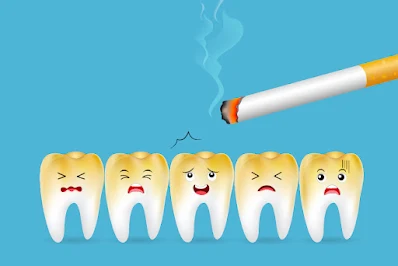Smoking and Oral Health: The Harmful Effects You Need to Know
Smoking has been a prevalent habit for centuries, and it has taken a toll on people's health in various ways. One of the most significant consequences of smoking is its adverse effects on oral health. It is essential to be aware of these harmful effects to take the necessary steps to protect your oral health. In this blog, we will discuss the various ways smoking harms your teeth and gums.
Stained Teeth
The first and most noticeable effect of smoking on oral health is stained teeth. Nicotine and tar in cigarettes can cause yellow and brown discoloration of the teeth, which can be difficult to remove with regular brushing. This staining can also be accompanied by bad breath, which can be unpleasant and embarrassing.
Gum Disease
Smoking is a leading cause of gum disease. It weakens the immune system, making it difficult for the body to fight off infection. It also causes the blood vessels in the gums to narrow, reducing blood flow to the gums and increasing the risk of infection. Smoking also interferes with the healing process, making it harder for the gums to repair themselves.
Tooth Loss
Gum disease caused by smoking can also lead to tooth loss. When gum disease is left untreated, it can damage the soft tissue and bone that support the teeth. As a result, teeth can become loose and eventually fall out. Compared to non-smokers, smokers lose their teeth twice as often.
Oral Cancer
Smoking is a significant risk factor for oral cancer. It can cause changes in the cells of the mouth, making them more susceptible to cancerous growth. The risk of oral cancer is higher for people who smoke tobacco products, such as cigarettes, cigars, and pipes. The risk increases with the amount and duration of tobacco use.
Delayed Healing
Smoking can delay healing after dental procedures, such as tooth extractions, root canals, and gum surgery. It can slow down the production of saliva, which plays a crucial role in the healing process. Smoking also reduces blood flow to the gums, which can prolong the recovery time.
In conclusion, smoking has a detrimental effect on oral health. It can cause stained teeth, gum disease, tooth loss, oral cancer, and delayed healing. If you are a smoker, it is essential to take steps to protect your oral health. Quitting smoking is the best way to reduce the risk of oral health problems. Regular dental check-ups, good oral hygiene habits, and a healthy diet can also help to maintain your oral health. Don't wait until it's too late; take action today to protect your oral health.




Comments
Post a Comment